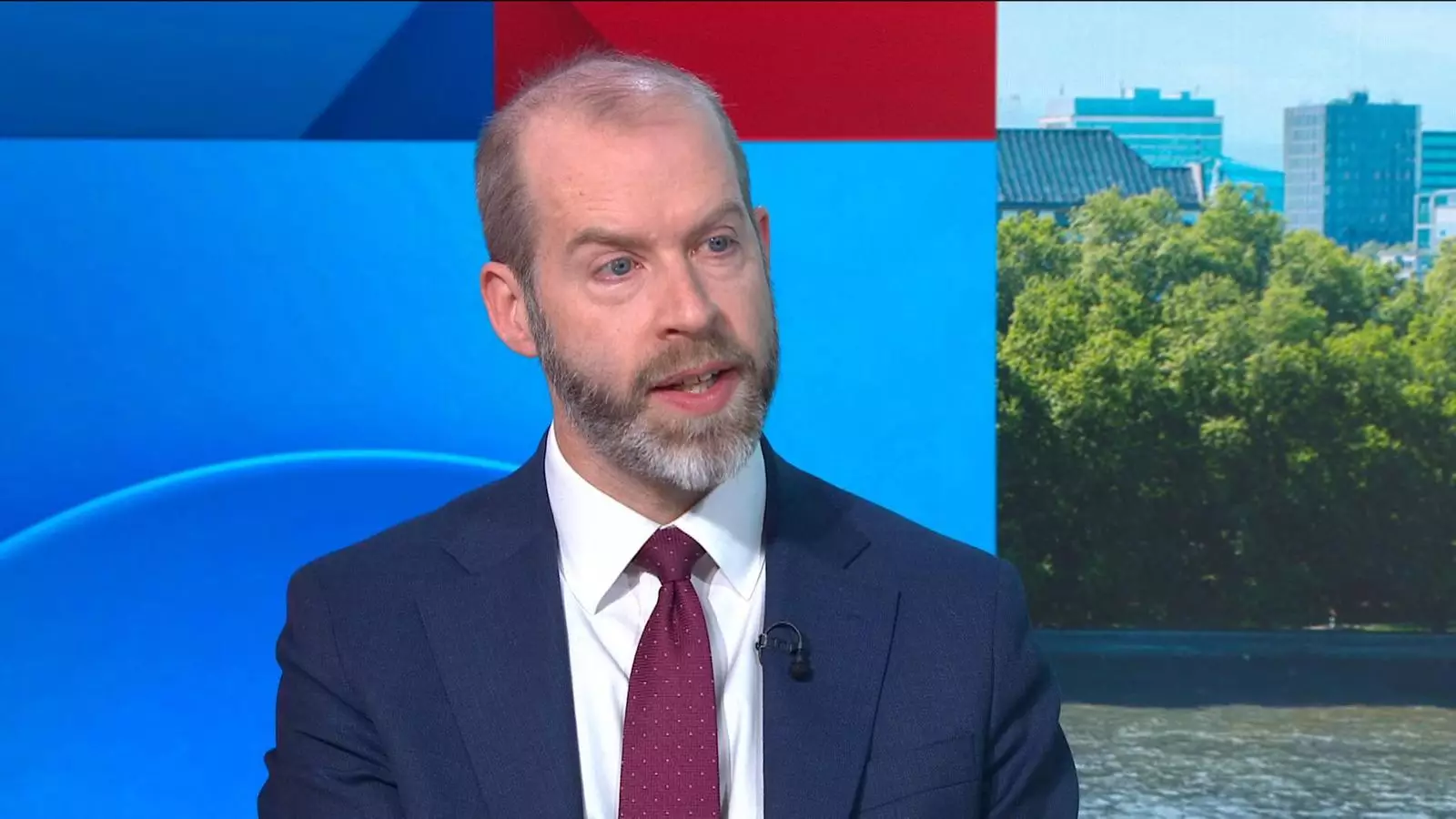The recent turmoil surrounding British Steel epitomizes the perils of allowing foreign entities to infiltrate critical areas of the UK economy. The government’s hurried legislative efforts to commandeer the ailing heavy industry reveal not just an immediate response to crisis but also the profound inadequacies tied to foreign ownership. The business secretary’s proclamation—his refusal to allow a Chinese company back into the steel sector—serves as a confession of past policy failures that have undermined national interests and security. This announcement isn’t just an administrative blunder; it’s a wake-up call that signals a broader reevaluation of how the UK approaches foreign investment, particularly in industries that are indispensable to national infrastructure.
In light of recent events, one must question the governmental rationale that permitted Jingye, a company steeped in controversy, to take control of British Steel back in 2020. The ramifications of that decision are now abundantly clear: a company’s inability to meet its obligations jeopardizes an entire industry, leaving workers and communities in limbo. No longer can the UK afford to shrug off critical industries to external players who prioritize profit over people.
The Government’s Frantic Maneuvering
The quick passage of the Steel Industry (Special Measures) Bill was a desperate attempt to safeguard jobs and production capacity, but it also served to highlight the alarming precedent of state intervention in the economy. This legislation, hastily constructed in response to a breakdown in negotiations with Jingye, grants the government nearly draconian powers to seize control of a steel plant—a move that carries significant implications for the future of business in the UK. Will this become a template for dealing with failure in foreign-owned enterprises, or merely a one-off solution to stave off impending disaster?
The fact that lawmakers had to be recalled from recess during a Saturday sitting emphasizes how critical the situation had become. However, borrowing powers from a playbook more akin to authoritarian regimes than liberal democracies raises serious ethical questions. Is this truly the kind of intervention citizens expect from a government that champions free market principles? One has to wonder whether the significant distance between corporate responsibility and governmental management will sow further discord in public trust regarding governmental competence and economic stewardship.
Echoes of Past Mistakes
The shadow of the Boris Johnson-era policies looms large over this latest crisis. While Reynolds claims ignorance regarding those prior decisions, they cannot be brushed aside so easily. If a sector this pivotal can be neglected to the point of requiring emergency intervention, it calls into question the fundamental strategy of the previous administration towards foreign dealings. The echoes of past mistakes should resonate loudly, encouraging current and future leaders to exercise extreme caution when contemplating the scope of foreign influence in essential industries.
The message is clear: Britain’s metalworks cannot be the playground of foreign oligarchs. The government’s admission of “sensitive” stakes in steel suggests an urgent need to reclaim sovereignty over industries that underpin national resilience and economic independence.
The Path Forward: Public Ownership vs. Private Partnership
While Reynolds hints at the possibility of commercial private sector partnerships to transition to new steel technologies, one must query whether this is akin to putting the proverbial cart before the horse. Where is the confidence in a private sector that has allowed itself to be so dangerously intertwined with unreliable foreign influences? The viability of public ownership has gained traction as a “likely option”, and truthfully, it might be the only option that secures future steel production while preventing tragic lessons from repeating themselves.
Public ownership may evoke fears of inefficiency; yet, in times of crisis, state intervention can serve as a stabilizing force. The alternative, festooned with the risks of relying on private players who relinquish responsibility when the going gets tough, is too fraught with peril. Britain must foster a robust steel sector based not only on production but on principles—principles that prioritize national interests over mere profits.
The situation poses more than just fiscal implications; it carries the weight of national identity and future readiness. It’s time for progressive leaders to champion reform and restore the strength of British Steel, ensuring it once again stands as a symbol of resilience, independence, and pride.

